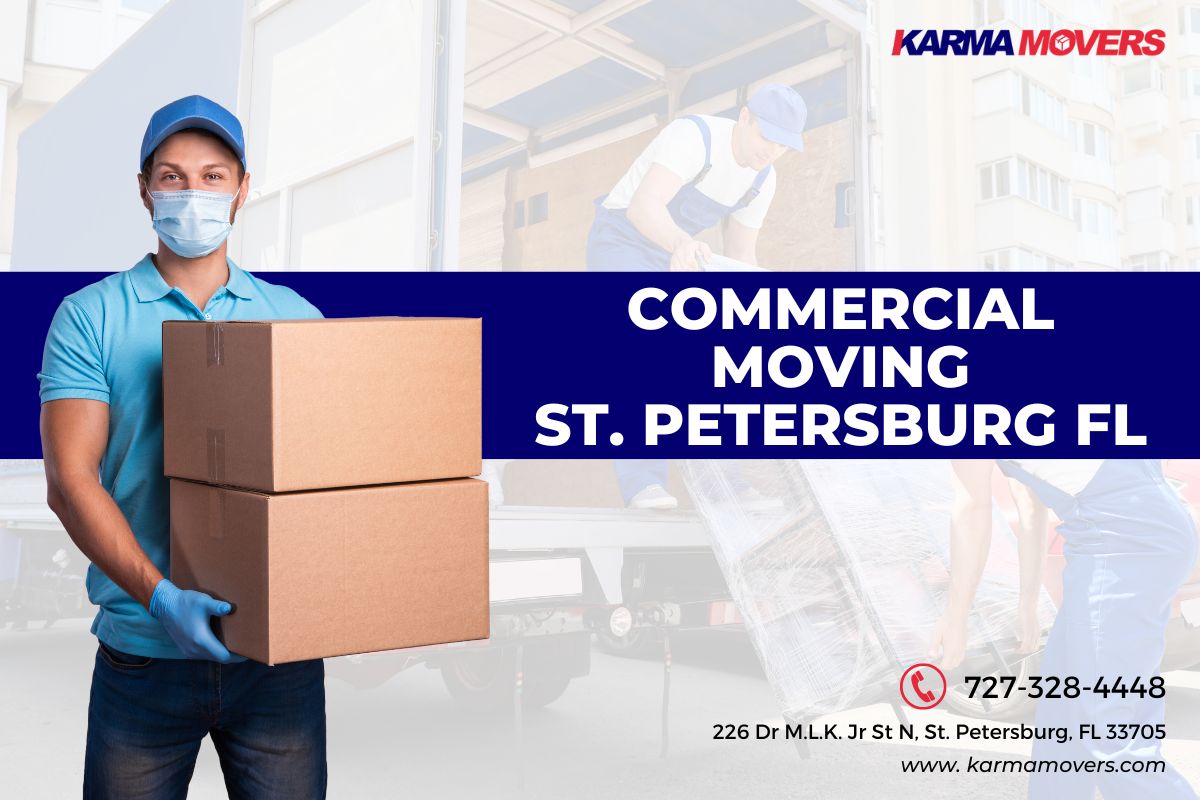
Introduction
When it comes to moving and storage, finding the right solution for your needs can be a daunting task. With so many options available, it's important to understand the different types of storage units available to you. Whether you're downsizing, decluttering, or in need of temporary storage during a move, having a clear understanding of your options will help you make an informed decision. In this article, we will explore the various types of storage units and discuss their benefits and use cases.
Exploring the Different Types of Storage Units Available to You
https://posts.gle/gNu6GdBWgz3yJBDg8Storage units come in various shapes and sizes, each catering to different needs. From traditional self-storage units to climate-controlled facilities, st petersburg local moving companies there is a solution for everyone. Let's take a closer look at some of the most common types:
1. Self-Storage Units
Self-storage units are perhaps the most well-known and widely used type of storage solution. These units are typically rented on a monthly basis and provide individuals with a secure space to store their belongings. Self-storage units come in various sizes, ranging from small lockers to large warehouse-like spaces.
Key Features:
- 24/7 access Security measures (such as CCTV cameras and keypad entry) Flexibility in terms of lease duration Wide range of unit sizes available
2. Climate-Controlled Units
For individuals who need extra protection for their sensitive belongings, climate-controlled units offer a suitable solution. These units regulate temperature and humidity levels, ensuring that your items are kept in optimal conditions. Climate-controlled units are ideal for storing items such as electronics, artwork, antiques, and wooden furniture.
Key Features:
- Temperature and humidity regulation Protection against extreme weather conditions Ideal for delicate or valuable items Prevents mold, mildew, and pest infestations
3. Vehicle Storage
If you have a vehicle that you need to store, whether it's a car, motorcycle, or RV, vehicle storage facilities can provide the necessary space and security. These facilities offer covered or uncovered parking spaces specifically designed to accommodate vehicles of different sizes. Vehicle storage is especially useful for individuals who don't have enough space in their driveway or garage.
Key Features:
- Secure parking spaces Protection against weather damage Some facilities offer additional services like battery charging and tire inflation
4. Portable Storage Units
Portable storage units have gained popularity in recent years due to their convenience and versatility. These units are delivered directly to your location, allowing you to load them at your own pace. Once filled, the unit can either be stored on-site or transported to a designated storage facility. Portable storage units are a great option for those who require temporary storage during a move or renovation.
Key Features:
- Flexibility in terms of delivery and pick-up Convenient loading and unloading process Can be stored on-site or off-site Ideal for short-term storage needs
5. Warehouse Storage
For businesses or individuals with larger storage requirements, warehouse storage offers ample space to store bulk items or inventory. These facilities are equipped with advanced security systems and often provide additional services such as inventory management and order fulfillment. Warehouse storage is commonly used by retailers, wholesalers, and e-commerce businesses.
Key Features:
- Large storage capacity Advanced security measures Additional services available (inventory management, order fulfillment) Ideal for businesses with high-volume storage needs
FAQs About Storage Units
What factors should I consider when choosing a storage unit? When choosing a storage unit, factors such as size, location, security measures, accessibility, and cost should be taken into consideration.
Are there any restrictions on what I can store in a storage unit? While most items are allowed, there are certain restrictions on storing hazardous materials, perishable items, live animals, and illegal substances. It's always best to check with the storage facility for their specific guidelines.
Can I access my storage unit at any time? Many self-storage facilities offer 24/7 access to their units. However, it's important to confirm this with the facility beforehand as some may have specific operating hours.
How long can I rent a storage unit for? Storage units can be rented on a month-to-month basis, providing flexibility for short-term or long-term needs. Some facilities may offer discounted rates for longer lease durations.
Is insurance required for my stored belongings? While insurance is not mandatory, it is highly recommended to protect your belongings from unforeseen events such as theft, fire, or natural disasters. Some storage facilities may offer insurance options or require proof of insurance.
What happens if I don't pay my storage unit fees? If you fail to pay your storage unit fees, the facility may impose late fees or eventually auction off your belongings to recoup their losses. It's important to stay updated with your payments to avoid any complications.
Conclusion
Exploring the different types of storage units available to you is crucial when considering your storage needs. Whether you're looking for a self-storage unit, climate-controlled space, vehicle storage, portable units, or warehouse storage, understanding the features and benefits of each option will help you make an informed decision. Consider factors such as size, security measures, accessibility, and cost when selecting a storage solution that suits your requirements. With the right storage unit at your disposal, you can ensure the safety and preservation of your belongings during times of transition or when decluttering your living space.